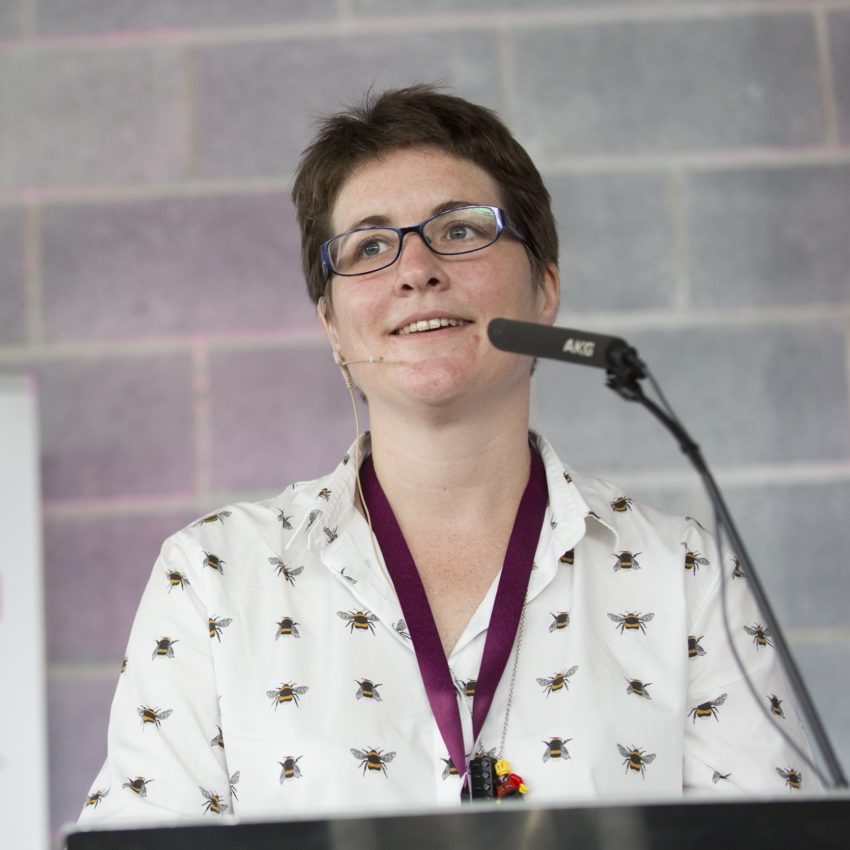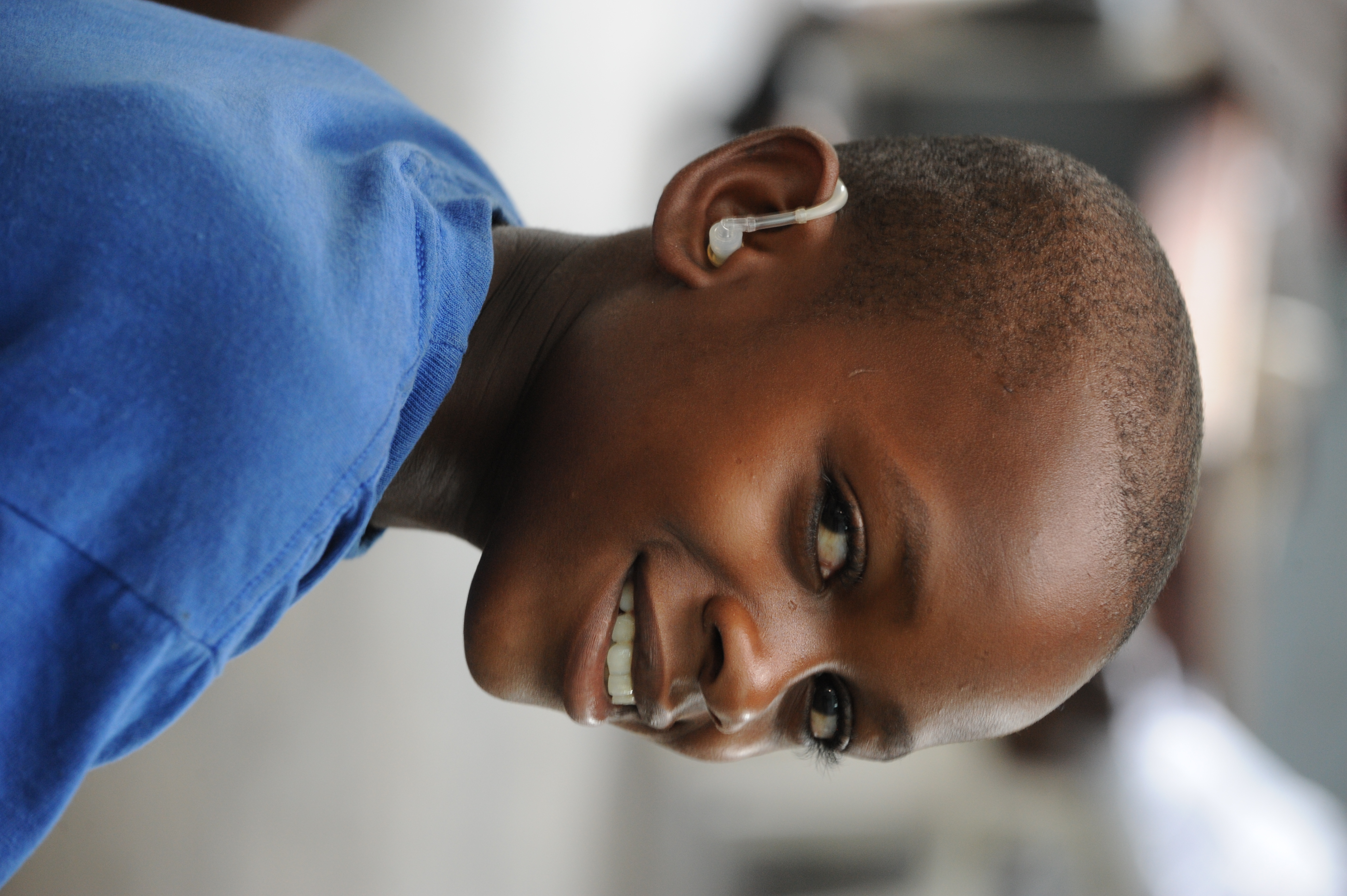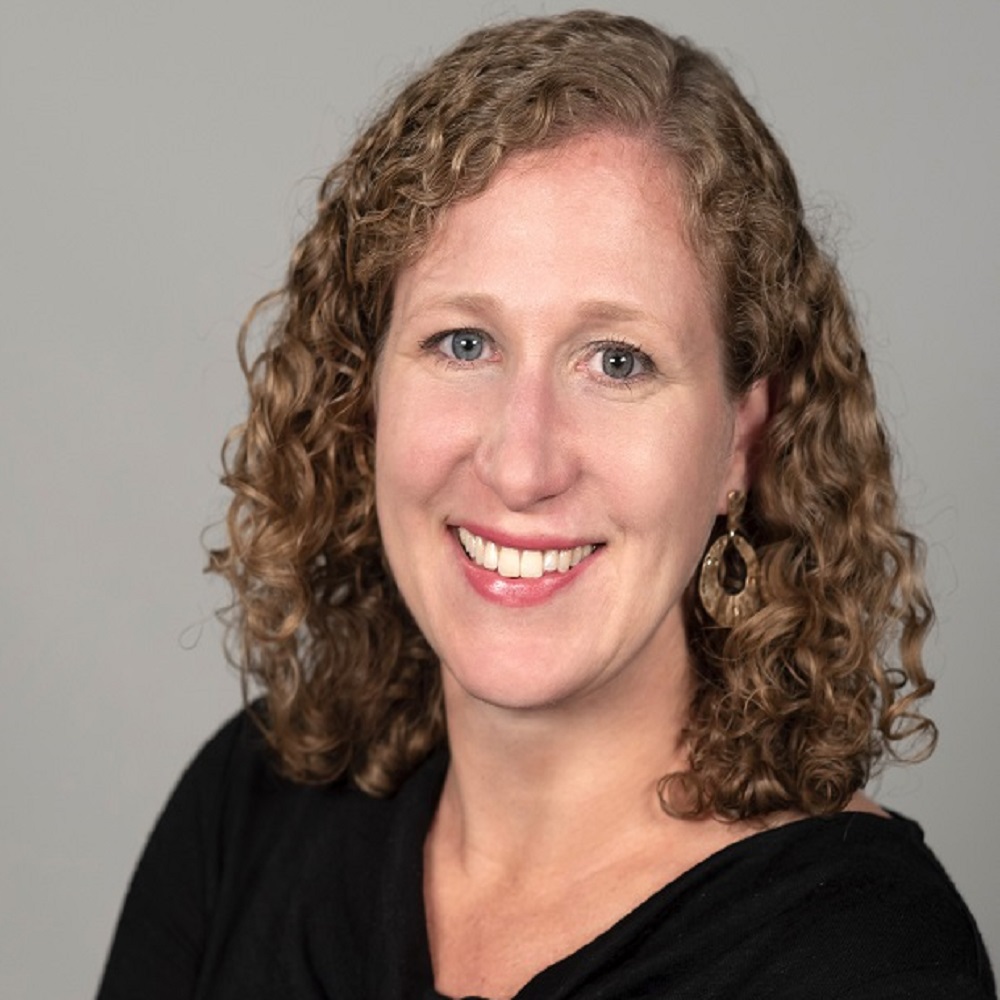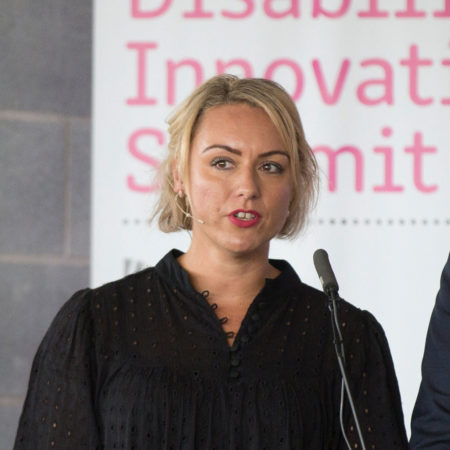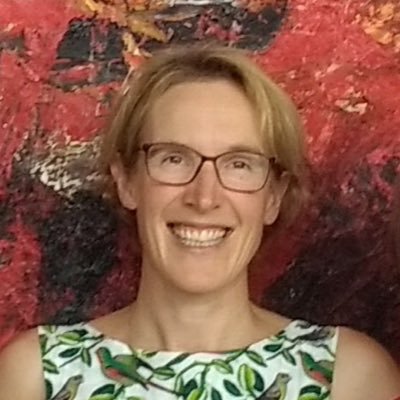Laying the foundations for market shaping and systems-level change
-
Laying the foundations for market shaping and systems-level change
- Address the need gap by significantly scale up the provision of affordable and appropriate Assistive Technology
- Align and consolidate global efforts to lay the foundations for systems-level change
- Allow countries to trial national AT provision models
- Test market-shaping methodologies including market plans, product narratives and tools
- Trail assistive product specifications, rapid AT-assessment, capacity assessments and supplier mapping
- Develop models of integrated service provision, screening and training tools to identify populations needs for AT
- Trial National AT provision model of two countries (Tanzania and Tajikistan) including collectively procured AT, personnel training, and service provision with clear sustainability tracking
- Making direct investment in activities which deliver foundational, strategic, agreed national AT priorities and reach disabled people directly with access to AT via the Country Investment Fund
Sub-Programmes
- SP 6: Drive Affordability & Availability: Led by The Clinton Health Access Initiative (CHAI), this sub-programme is developing AT Product Narratives to inform global investment and scoping market-shaping opportunities.
- SP 7: Open-Up Market Access: To align and consolidate global AT efforts, as well as to lay the foundations for systems-level change, this sub-programme is providing a set of global benchmarks and standards for AT. This programme is being co-led by WHO, UNICEF, and the London School of Hygiene and Tropical Medicine. Partners include: CHAI, UNICEF, WHO, HelpAge International, LSHTM, Morogoro Older Persons Association, Latter Day Saints Charities, MoH Tanzania, HelpAge International
- SP 8: Country Capacity: This sub-programme has three elements. Firstly, it brings together the WHO, GDI Hub and Clinton Health Access Initiative (CHAI) to develop, test and learn from Country Capacity Assessments. Secondly it supports countries to develop national action plans. Thirdly it funds investment to support national AT priorities in these countries. Partners: Clinton Health Access Initiative (CHAI), World Health Organisation (WHO), Maynooth University
Latest
-
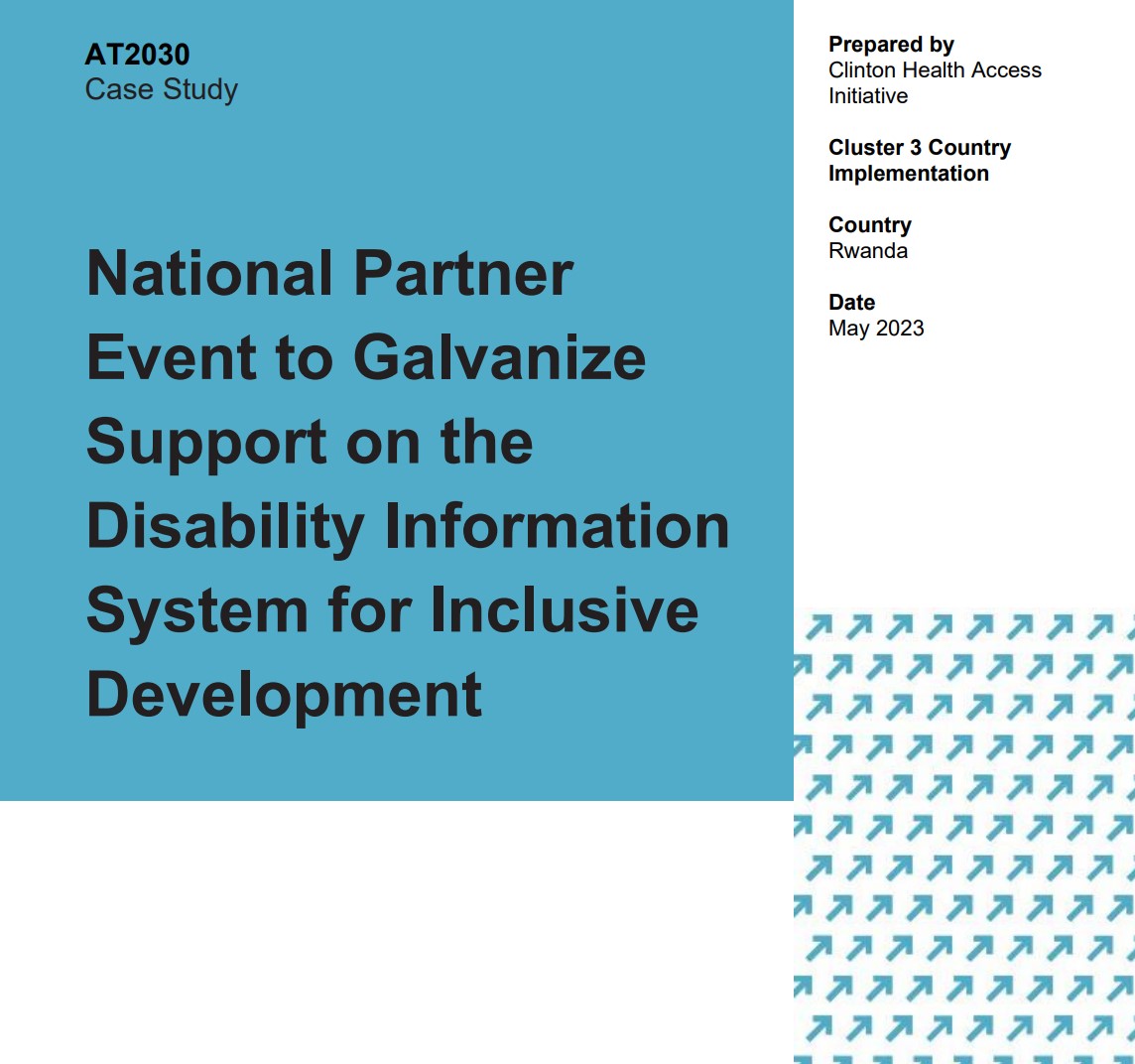
Rwanda national partner event to galvanise support on the Disability Information System for Inclusive Development
Clinton Health Access InitiativeMay 24, 2023RwandaCase Studies and ReportsThis case study explores a recent National Partner event led by the Rwandan National Council of Persons with Disabilities (NCPD) and its stakeholders to build support on the Disability Information System for Inclusive Development. This system aims to provide evidence-based support for inclusive policies, enhance accountability, improve service delivery, and foster better coordination among key stakeholders. Ultimately, the goal is to enhance management of disability information in the country.
-
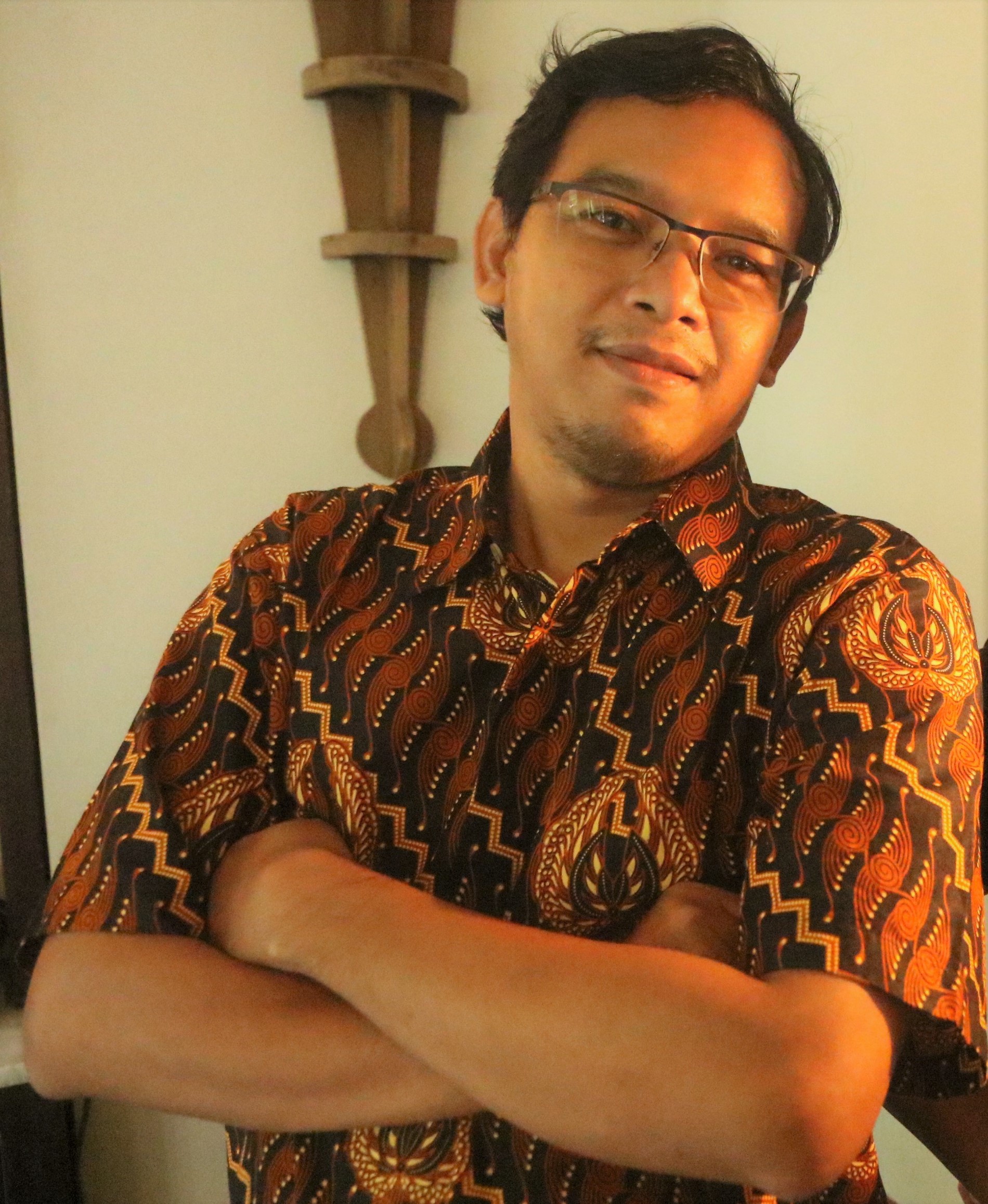
Championing Assistive Technology in Indonesia’s new National Commission for Disabilities
Global Disability Innovation Hub, Clinton Health Access InitiativeFeb. 11, 2022IndoneisaCase Studies and ReportsAn impact story introducing Eka Prastama Widiyanta - one of the seven members of the newly established National Commission for Disabilities (KND) in Indonesia, for the 2021-2026 period. December 2021 has marked a new milestone for persons with disabilities in Indonesia. President Joko Widodo appointed seven members of the newly established National Commission for Disabilities (KND) for the 2021-2026 period. Eka Prastama Widiyanta, former programme officer for CHAI under the AT2030 programme in Indonesia, was appointed as one of the country’s seven KND Commissioners.
-
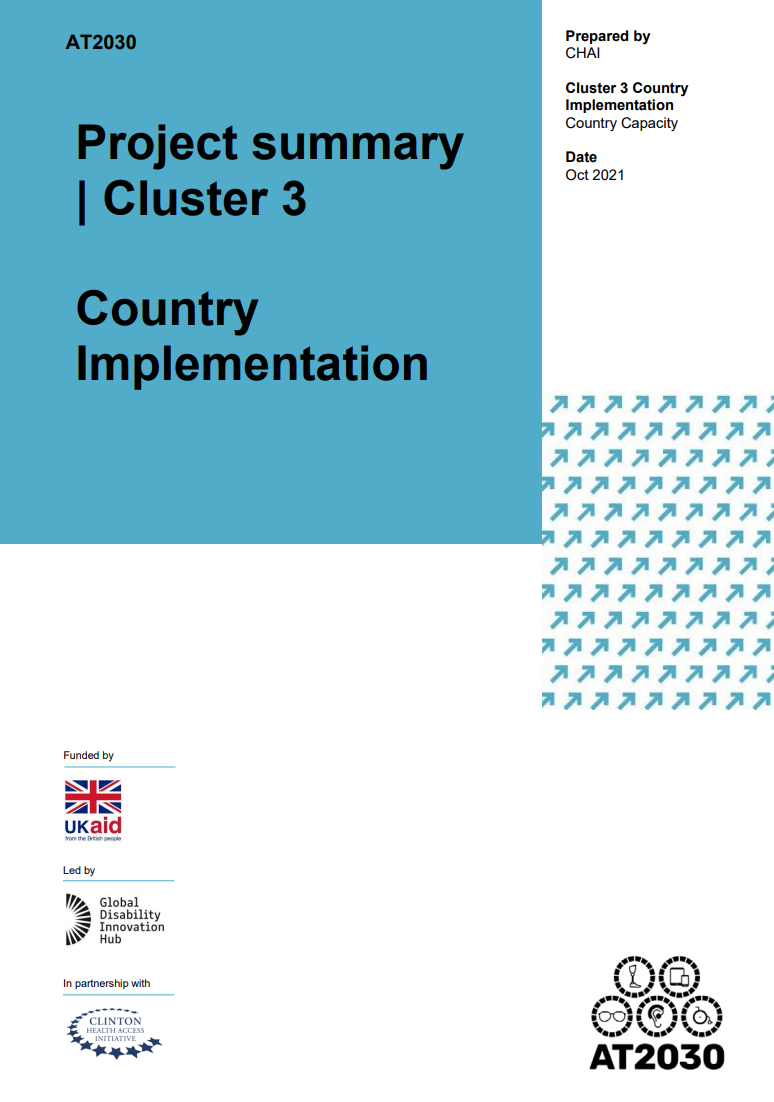
Project summary; Cluster 3 - Country Implementation
Clinton Health Access InitiativeOct. 6, 2021Case Studies and ReportsUnder Cluster 3 of AT2030, the Clinton Health Access Initiative (CHAI) partnered with country governments to identify opportunities to drive AT availability and affordability. To date, through CHAI’s work nearly 100,000 people directly benefited from the programme, either through delivery of AT or capacity building, and nearly 55 million persons with disabilities were impacted by new national AT policies or action plans. Find out more.
-
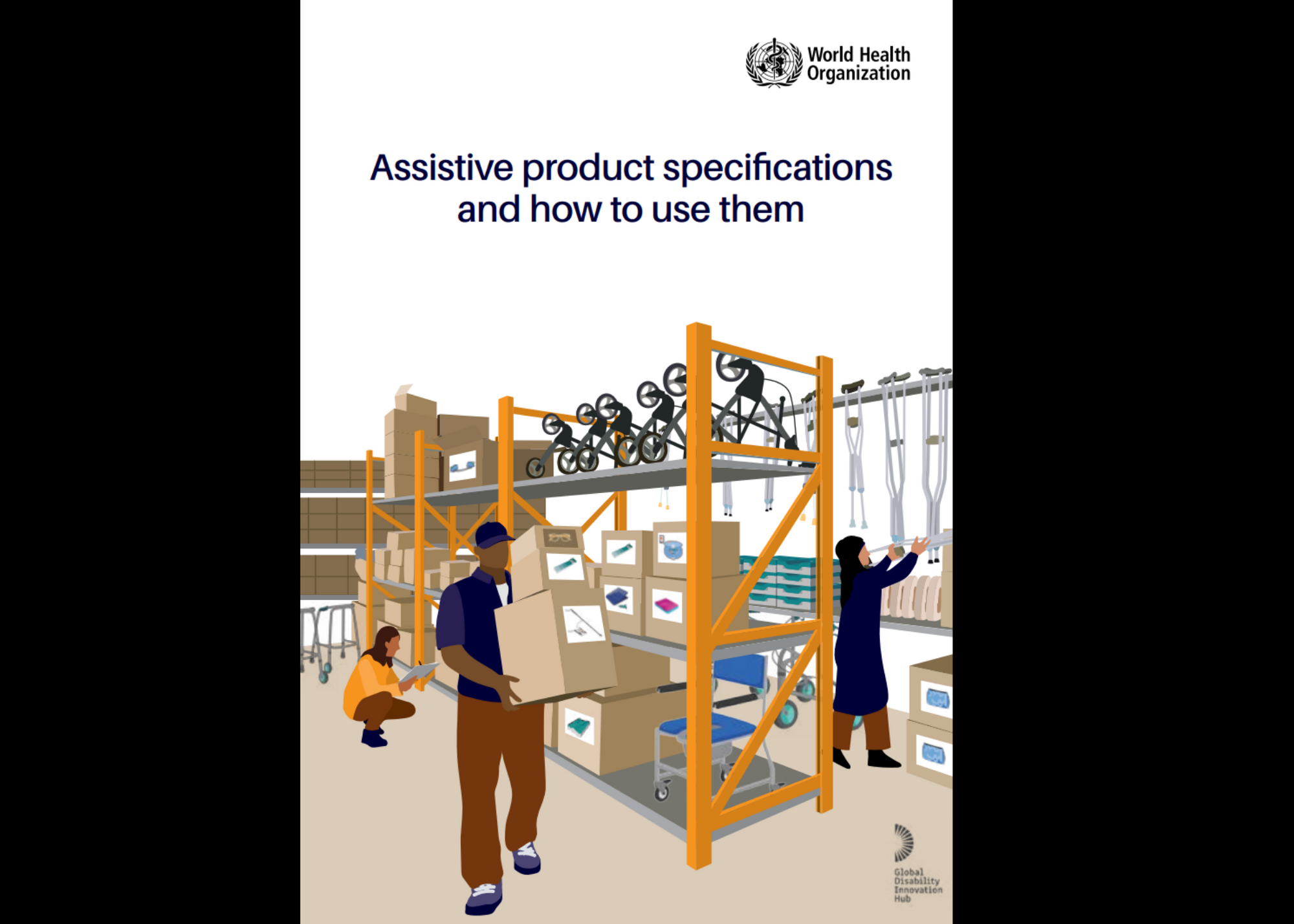
First ever global guide for assistive technology to improve the life of millions
Global Disability Innovation Hub, UNICEF, World Health OrganizationMarch 4, 2021GlobalNewsThe new WHO Assistive Products Specifications is the first global guide for quality-assured assistive products, containing specs for 26 prioritised assistive products, including the minimum quality requirements for manufacturing. Funded by UK Aid under the AT2030 programme, the work is a major milestone to drive high quality, affordable AT globally.
-
Assistive Technology: What is in a name?
GATEOct. 19, 2020GlobalThe World Health Organization (WHO) defines assistive technology as ‘the application of organized knowledge and skills related to assistive products, including systems and services.’ Assistive products are ‘any external product (including devices, equipment, instruments or software)…the primary purpose of which is to maintain or improve an individual’s functioning and independence, and thereby promote their well-being’.1 Put simply, assistive products are the products and assistive technology is the whole ecosystem that is needed for their safe and effective provision and use.
People
